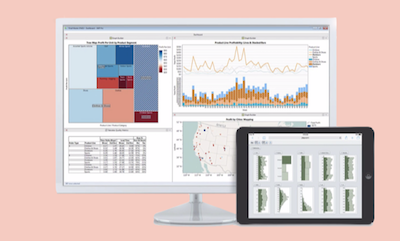‘Adapt to Meet Needs of Students’.
 Population Health Exchange (PHX) is launching its first full-length online course during the annual Summer Institute, happening June 4 to June 29.
Population Health Exchange (PHX) is launching its first full-length online course during the annual Summer Institute, happening June 4 to June 29.
The four-week, 40-hour course, Essentials of Biostatistics with JMP, is a comprehensive introduction to the application of biostatistics in the field of public health. Participants will learn to compute and interpret descriptive statistics, confidence intervals, and tests of hypothesis using the software program JMP, a SAS product for data discovery, data analysis, and data visualization.
Taught by Lisa Sullivan, associate dean for education and professor of biostatistics, the course includes weekly live sessions and graded project work to allow students to practice techniques and receive feedback. Sullivan created the course with Ella Epshteyn, the digital learning designer at PHX.
Sullivan discussed the benefits of the course and the demand it seeks to meet.
What will students get out of the course?
The goals of this course are to give students the tools and confidence to design, conduct, and report on biostatistical analyses, and to evaluate and interpret studies they might encounter in the public health and medical literature. We discuss how to apply sound statistical principles to turn data into knowledge, for sound, evidence-based public health decisions.
Students learn to use JMP, a very interactive product that’s pretty easy to get started working in. We actually have a partnership with JMP, and they’re offering anybody who takes this course a two-year license to the product. People can get training in using JMP, and then go back and use it in their work. Students will also gain access to a Kindle version of my book, Essentials of Biostatistics in Public Health, 3rd Edition.
Who is this course for?
We’re really running it for anybody who is interested in an introduction to biostatistics. It’s not a credit-bearing course, but it should be of interest to people who want to learn about biostatistics and have never done it before, or for anyone needing to brush up.
It is designed to work for working professionals. There will be deadlines for people to turn in projects and other assignments, but it should still be flexible enough that someone can work at their full-time job, manage their family and personal life, and at the same time learn some valuable new skills.
We’re also hoping that it will help some of our prospective students who are interested in our Master of Science programs and need to meet some prerequisite training. This is a flexible way for them to do it, or to refresh their knowledge and skills if they took a statistics course a while ago.
Why is this subject the first to get a full online course?
We want to move to develop a range of these kinds of courses. There wasn’t anything really specific as to why this was the first one, other than that it seems to be something that our alumni have expressed interest in. Our MPH alumni have taken a course in biostats, or now our core integrated course in quantitative methods, but if you don’t use it in your work you might forget about some of the details, and this is a great option for people to refresh or develop these skills.
I hope that over time we develop a range of these courses so that our alumni can stay connected to us and stay on top of the skills that they need to advance in their careers.
What does the course involve?
We’ll focus on interpretation, both statistical and clinical or practical significance of data and results. We’ll look at examples like the safety and efficacy of new medicines and vaccines; predictors of health inequities; risk factors for diabetes; obesity; cardiovascular disease; and the effects of smoking and drinking during pregnancy.
It’s a flexible format, with modules that walk through the content with interactive slides, video, quizzes, and hands-on practice. We’ll have live sessions every week, and I’ll go online for a couple of hours each week so that people can ask questions. Students will also work on projects offline using JMP, conducting and interpreting analysis on the topics we cover, submit their work via email, and receive feedback.
Ella [Epshteyn] has put the material together in a way that is visually dynamic and promotes engagement. We’ll also get feedback from participants at the end of the course, and we’ll adapt and revise to meet the needs of the students.